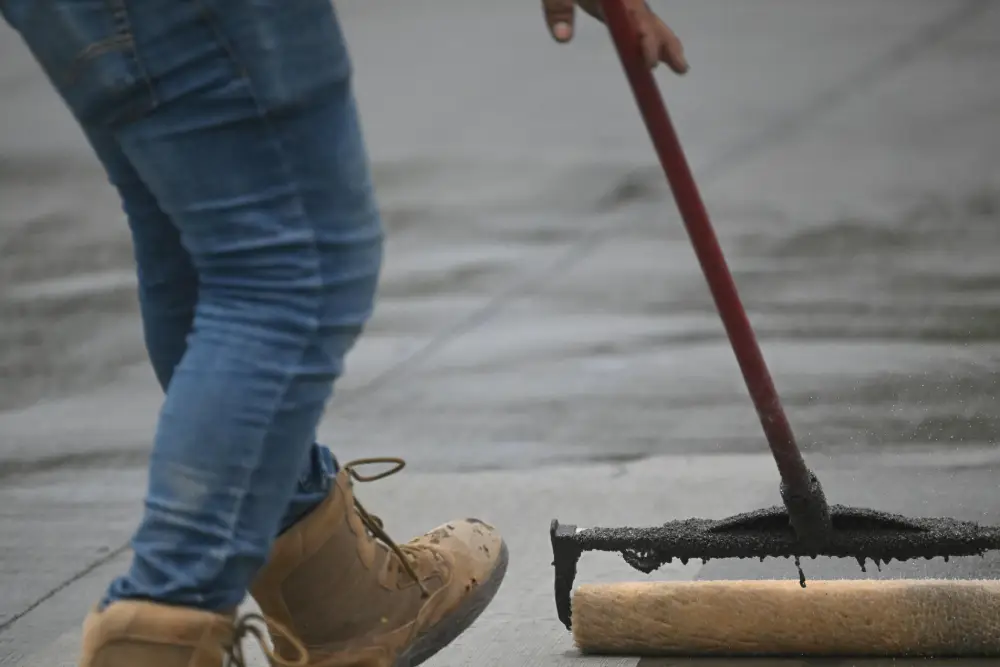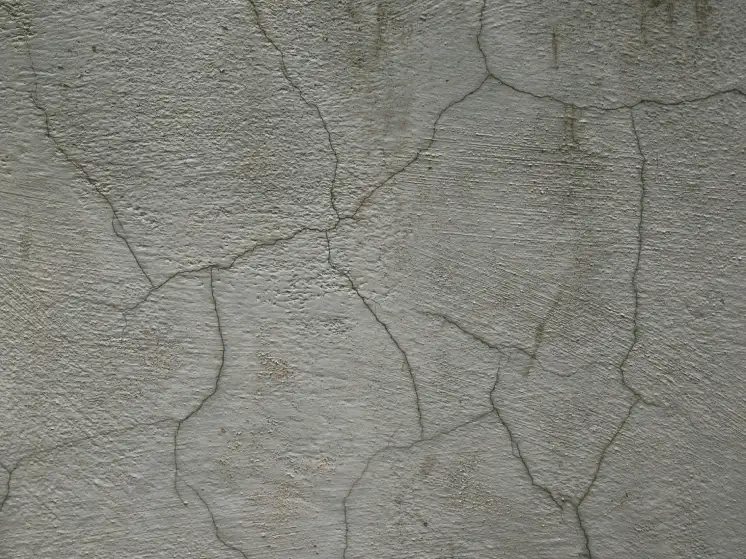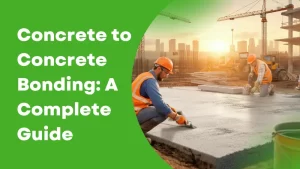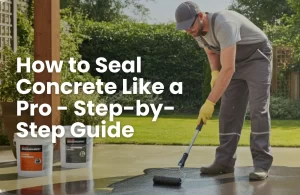Concrete stands as one of most durable and used materials for driveways patios and walkways. Strength and versatility make it indispensable. However concrete surfaces similar to any other material, require maintenance. This is to ensure they stay in good condition for many years. This is where concrete sealing plays role – a vital one.
Sealing concrete does more than just protect from wear. It also enhances appearance. The lifespan is extended. Whether upgrading one’s driveway or working on a patio. For those managing properties who wish to protect assets understanding this importance is essential.
We will explore concrete sealing and why it is significant. Its numerous benefits will also be discussed. All this will help you make a measured decision in protecting your surfaces.
What is Concrete Sealing?
Concrete sealing comprises applying protective layer or penetrating solution. It is applied to concrete surfaces. The layer functions as a barrier. This barrier offers protection. It protects the concrete from stains. It also protects it from moisture and weather damage.


Sealing vs. Resurfacing
In the case of sealing, it isn’t about repairs. It’s about protection. Resurfacing, on the other hand is about repairing or restoring. It works to repair worn or damaged concrete. It does this by adding a new layer on top. Sealing functions best as a preventive measure. It helps to maintain the structure. It also helps to maintain the appearance of concrete. This is all before wear and tear damage sets in.
Types of Concrete Sealers
- Penetrating Sealers: These seep into concrete. They give a natural appearance but they provide a robust shield. Moisture and contaminants are guarded against. These are perfect for outdoor surfaces.
- Film-forming Sealers: A protective layer forms on concrete with these sealers. They offer glossy or satin finish. Ideal for improving appearance. Still they protect the surface effectively.
- Acrylic Epoxy Polyurethane Sealers. Each has certain traits .They serve specific purposes. For example they’re UV resistant .This is ideal for outdoor use. Also they can handle heavy traffic.
Why Should You Seal Concrete?


Concrete is prone to moisture absorption. It also has cracking and surface degradation over time. When we seal concrete it provides benefits. It helps in the following ways:
- Prevents Damage from Moisture
Moisture is harmful. It can lead to cracking and spalling. This happens in freeze-thaw cycles. A sealer can block the moisture penetration. It will protect the surface from damage.
- Protects Against Stains
Sealing can do wonders. It will keep oil and dirt and contaminants from seeping. They won’t seep into the concrete. This will make it easier to maintain. Sealing is a protection against undesirable stains.
- Extends Longevity
A surface that is sealed is more resistant to wear and tear. It will extend its durability. This helps you to avoid costly repairs. You also avoid the need for replacements.
Top Benefits of Concrete Sealing
- Durability and Longevity
Concrete sealing prolongs lifespan of surfaces. These include driveways. They also include patios and pathways. By giving protection against damage from weather and heavy use sealing ensures investment endures. And it does so for decades.
- Protection from Stains and Contaminants
Sealed concrete is far less likely to absorb oils, grease or dirt. This applies to food spills as well. This can be especially significant for high-traffic areas. For example garages and courtyards.
- Enhanced Appearance
Sealing nurtures. It does not only safeguard. It also adorns. The process restores color and texture. This makes concrete surfaces look vibrant. They also look polished. You can choose a finish. It will suit your preference. It may be matte. Alternatively, it could be satin or glossy.
- Weather Resistance
Concrete can take a beating. Australia’s harsh weather conditions are sometimes a challenge. Sealers come in handy. They offer robust protection. The protection is against various elements. These include UV rays. They protect against heavy rain too. Last but not the least is the damaging freeze-thaw cycle. This cycle can erode unsealed concrete.
- Easy Maintenance
Enclose sealed concrete is A snap to clean. Sealer hinders dirt and moisture from seeping in .This allows For easier Maintenance tasks like mopping or dusting.
- Increased Safety
Sealers also offer more slip-resistant properties. This enhances safety of Driveways and other outdoor surfaces .The improvement is especially significant during wet conditions.
- Cost-Effectiveness
Protection is also A benefit. Sealing concrete saves against damage. It also prevents the need for major repairs .It helps you save significantly in the future.
When to Seal Concrete
- New Concrete
Enclose sealed concrete is A snap to clean. Sealer hinders dirt and moisture from seeping in .This allows For easier Maintenance tasks like mopping or dusting.
- Existing Concrete
Sealers also offer more slip-resistant properties. This enhances safety of Driveways and other outdoor surfaces .The improvement is especially significant during wet conditions.
- Seasonal Considerations
Protection is also A benefit. Sealing concrete saves against damage. It also prevents the need for major repairs .It helps you save significantly in the future.
How to Seal Concrete - Sealing Steps
Whether you’re a homeowner looking to safeguard your driveway, a DIY enthusiast restoring outdoor surfaces, or a contractor seeking client satisfaction, this guide will walk you through the precise steps to professionally seal concrete.
- Cleaning
Eliminate dirt. Remove oil. Discard grease. Eliminate past coatings from the surface. - Repairing
Patch any cracks. Mend the damages. Do this before applying the sealer. - Application
Use a roller. Consider using a sprayer. These are for applying the sealer evenly. Do so across the surface. - Drying
Allow the sealer to cure properly. Do so according to the manufacturer’s recommendations. Only then use the surface.
DIY vs. Professional Sealing
A DIY sealing project can be suitable. It may work for small uncomplicated areas. For the optimal results and to save time professional sealing services are highly recommended. Professionals have experience. They have the necessary tools. It ensures an even application. The durability is set to a maximum.
FAQs About Concrete Sealing
Typically concrete needs sealing every 2-5 years. These each are dependent on seal type and wear level. Sealing can reduce risk of cracking. Still, environmental factors can cause damage.
Extreme temperature shifts can damage. Heavy loads as well. Regular maintenance is necessary. It helps preserve concrete quality.
Not necessarily. Many sealer types are designed to boost traction. You can also apply anti-slip additives. Extra safety on outdoor surfaces can be achieved this way.
Why Invest in Concrete Sealing?
Sealing concrete proves an investment. The investment brings substantial benefits. These benefits include enhanced durability. They also include improved surface appearance. Additionally, long-term financial savings accrue.
Don’t know exactly where to start? Communicate with us without delay. Reach out to us today. We will share more details about services. We will enlighten you about professional concrete sealing work. Also you can make an appointment with us.
Related Blog Posts



